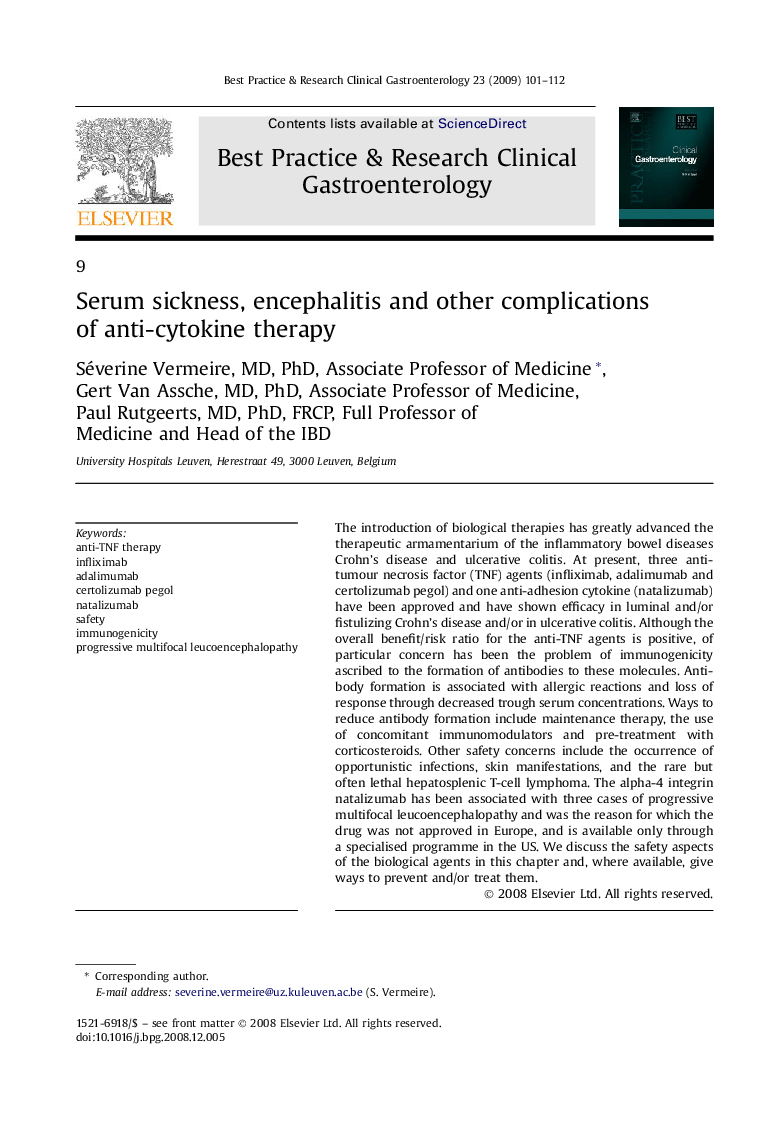| Article ID | Journal | Published Year | Pages | File Type |
|---|---|---|---|---|
| 3254472 | Best Practice & Research Clinical Gastroenterology | 2009 | 12 Pages |
The introduction of biological therapies has greatly advanced the therapeutic armamentarium of the inflammatory bowel diseases Crohn's disease and ulcerative colitis. At present, three anti-tumour necrosis factor (TNF) agents (infliximab, adalimumab and certolizumab pegol) and one anti-adhesion cytokine (natalizumab) have been approved and have shown efficacy in luminal and/or fistulizing Crohn's disease and/or in ulcerative colitis. Although the overall benefit/risk ratio for the anti-TNF agents is positive, of particular concern has been the problem of immunogenicity ascribed to the formation of antibodies to these molecules. Antibody formation is associated with allergic reactions and loss of response through decreased trough serum concentrations. Ways to reduce antibody formation include maintenance therapy, the use of concomitant immunomodulators and pre-treatment with corticosteroids. Other safety concerns include the occurrence of opportunistic infections, skin manifestations, and the rare but often lethal hepatosplenic T-cell lymphoma. The alpha-4 integrin natalizumab has been associated with three cases of progressive multifocal leucoencephalopathy and was the reason for which the drug was not approved in Europe, and is available only through a specialised programme in the US. We discuss the safety aspects of the biological agents in this chapter and, where available, give ways to prevent and/or treat them.
